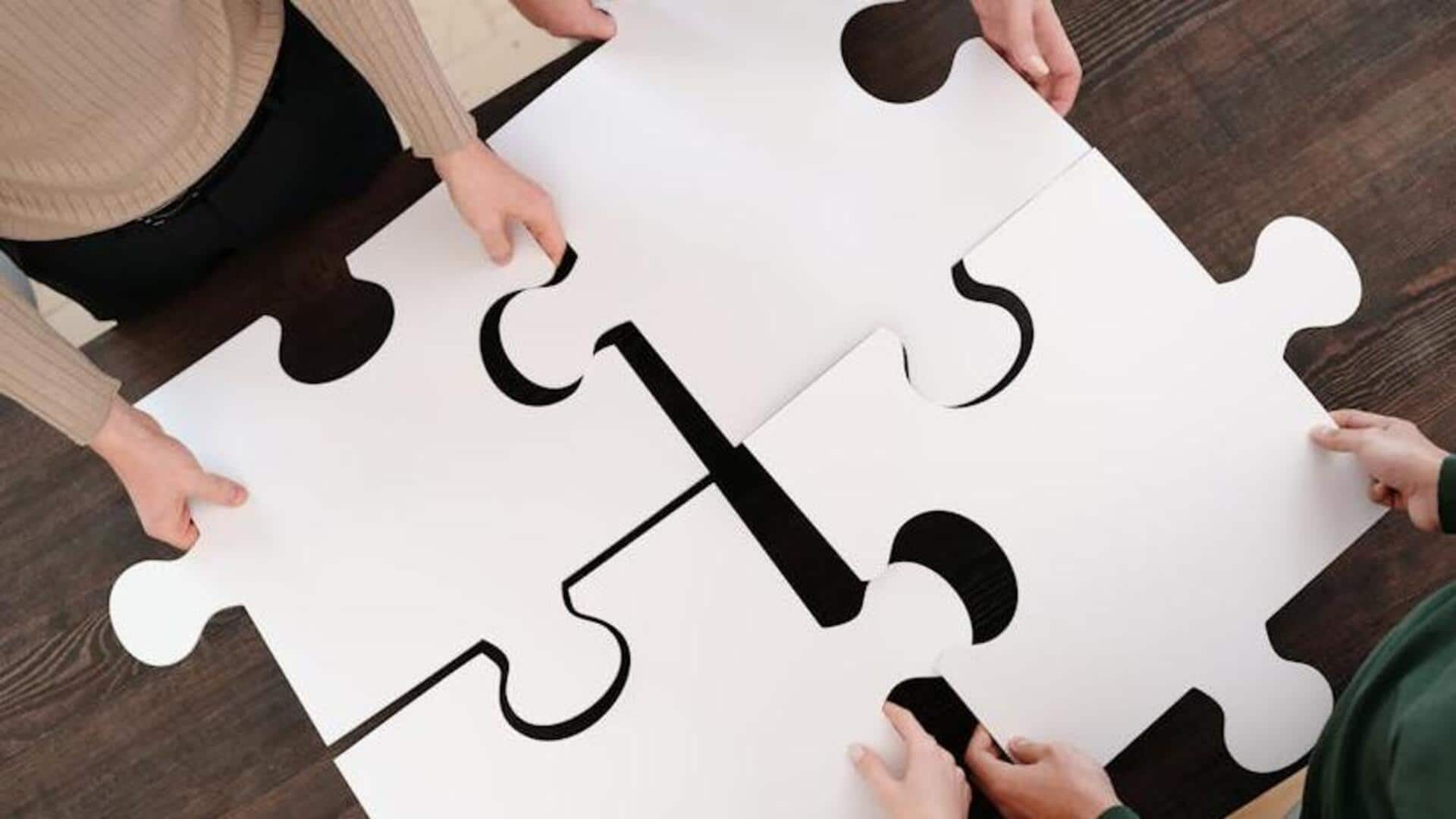
5 ways to enrich problem-solving with jigsaw puzzles
What's the story
Jigsaw puzzles aren't just a fun pastime. They're a brain-boosting workout that can dramatically improve cognitive abilities, especially problem-solving skills. Tackling puzzles forces your brain to identify patterns, strengthen memory, and hone logical thinking. Read on to discover five powerful ways jigsaw puzzles can supercharge your problem-solving skills, regardless of your age.
Pattern recognition
Enhance pattern recognition
Identifying the different shapes, colors, and patterns in a jigsaw puzzle to figure out where each piece belongs in the bigger picture - that's what it is all about. You're training your brain to recognize patterns quickly and accurately. By regularly tackling puzzles, you're exercising your brain to identify patterns in real-life scenarios more efficiently. And, pattern recognition is a key aspect of solving complex problems.
Memory boost
Boost memory retention
Solving jigsaw puzzles boosts both short-term and long-term memory by strengthening the connections between brain cells. Recalling shapes, colors, and what pieces you've already tried in certain positions sharpens your memory recall. Eventually, this not only helps in solving puzzles but also improves your memory retention for other everyday tasks and learning new info.
Concentration improvement
Improve concentration levels
Jigsaw puzzles require intense focus, as you have to concentrate on minute details for extended periods. This trains your brain to enter a state of deep focus, free from distractions. Improved focus is essential for tackling complex problems that demand prolonged mental effort. By regularly solving puzzles, you strengthen this ability, enhancing your problem-solving skills across different tasks.
Creativity and logic
Foster creative and logical thinking
Solving jigsaw puzzles involves a combination of creative imagination to envision the completed image and logical reasoning to fit pieces together based on their shapes and colors. This fosters a balanced approach to problem-solving, encouraging a mindset of "creative criticism" where novel ideas are evaluated for feasibility, ultimately strengthening both creative and analytical thinking skills.
Persistence training
Encourage persistence and patience
The process of completing a jigsaw puzzle mirrors the trial-and-error nature of problem-solving that requires patience and persistence. Confronting challenging sections without giving up fosters resilience in the face of complex problems. This mindset prepares individuals to approach real-life challenges with unyielding determination, reinforcing the understanding that perseverance will eventually yield solutions, even when progress seems elusive.